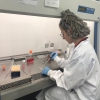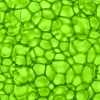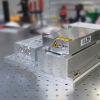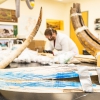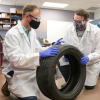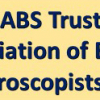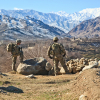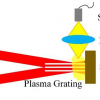Atomic Spectroscopy News
Scientists from Moscow, Russia studied the dynamics of lithium plasma under laser-induced breakdown spectroscopy using a custom system made using 3DLINE code.
ICP-MS of glass tesserae from a villa from late antiquity indicates that some were made from recycled glass, as well as which elements were used for colouring.
Fusion of LIBS and acoustic data to analyse minerals under Terrestrial and Martian atmospheric conditions improves the performance.
The Gordon F. Kirkbright and Edward Steers awards are seeking nominations.
The first local managing director for Shimadzu Denmark, Joachim Holm, has been appointed.
As an industry partner, HORIBA will co-create, support and mentor a four-year research project to explore how spectroscopy can help drive new methods of cell screening and disease diagnosis based on animal-free research.
A collaborative team of researchers combined a single-cell ICP-MS with XAFS to get a detailed picture of the interaction between precious metals and Galdieria sulphuraria cells.
Scientists from the LZH have developed a laser to detect water in the polar regions of the Moon using LIBS.
Dr Christoph Mätzig, who is moving within the AMETEK Group and has taken over the management of the Ultra Precision Technologies division, will be succeeded by Michael Privik.
The New York/New Jersey Section of the Society for Applied Spectroscopy are seeking nominations for their 2022 Gold Medal Award.
An international research team has used laser ablation ICP-MS to retrace the lifetime journey of an Arctic woolly mammoth, which covered enough of the Alaska landscape during its 28 years to almost circle the Earth twice.
Shimadzu has appointed Jürgen Semmler as the new Managing Director of its European organisation. He previously headed Shimadzu Deutschland since its foundation in 2006.
Hitachi High-Tech Analytical Science has opened a new 4118 m2, high-tech manufacturing facility in Shanghai, China.
The new approach, using LIBS analysis of skid marks from tyres, could provide law enforcement additional tools to track down drivers who flee a crime scene.
A new concept, based on ICP-MS, for rapidly analysing for the presence of a virus from colds to coronaviruses has been proposed.
Applications are invited for two awards administered by the ABS Trust.
A grant for a new integrated femtosecond laser ablation and laser induced breakdown spectroscopy system has been made to UK scientists to allow them to understand how the Earth works and how it’s changing.
Debris from depleted uranium munitions used in the Gulf War has long been blamed for contributing to the illness of hundreds of thousands of veterans, but new research using ICP-MS proves it is not the cause.
Plasma-grating-induced breakdown spectroscopy can overcome limitations inherent in other LIBS techniques, and enhance signal intensity by more than three times.






